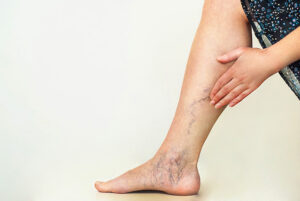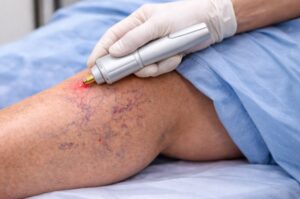Vein health plays a critical role in maintaining overall wellness, yet many individuals overlook the importance of caring for their veins. Common conditions like varicose veins, spider veins, deep vein thrombosis (DVT), and venous insufficiency are often dismissed as mere cosmetic concerns or minor discomforts. However, untreated vein issues can lead to more serious complications, affecting circulation and causing chronic pain.
When it comes to addressing these problems, Vascular specialists are the specialists you should turn to. They possess the knowledge, training, and expertise to diagnose and treat a wide range of vein disorders, helping you restore both function and appearance.
What Do Vascular specialists Do?
Vascular specialists are medical specialists trained in managing diseases of the vascular system, which includes arteries, veins, and lymphatic vessels. They are experts in both minimally invasive treatments and complex surgeries. Their comprehensive training allows them to diagnose and treat a wide array of conditions, from cosmetic concerns like varicose veins to life-threatening issues such as aneurysms and DVT.
Unlike other medical professionals who may focus on one form of treatment, vascular specialists are uniquely qualified to offer a range of options. This can include non-surgical methods like compression therapy, minimally invasive procedures such as vein ablation or sclerotherapy, and surgical interventions when necessary.
Common Vein Issues Vascular specialists Treat
- Varicose Veins
Varicose veins are enlarged, twisted veins that often appear on the legs and feet. They develop when valves within the veins weaken, allowing blood to pool instead of flowing back to the heart. This can lead to swelling, pain, and skin changes over time. Vascular specialists can treat varicose veins using various methods, including laser therapy, radiofrequency ablation, and vein stripping, depending on the severity of the condition. - Spider Veins
Spider veins are smaller than varicose veins and often appear as red or blue lines on the skin’s surface. Though primarily a cosmetic issue, they can sometimes indicate underlying venous insufficiency. Treatments such as sclerotherapy, where a solution is injected into the veins to collapse them, are commonly used by Vascular specialists to remove these veins. - Deep Vein Thrombosis (DVT)
DVT occurs when a blood clot forms in a deep vein, usually in the legs. This condition can be life-threatening if the clot breaks free and travels to the lungs, causing a pulmonary embolism. Vascular specialists can manage DVT with anticoagulation therapy or, in severe cases, perform surgical procedures to remove the clot. - Chronic Venous Insufficiency (CVI)
CVI happens when vein walls or valves in the legs fail to work effectively, making it difficult for blood to return to the heart. This can result in swelling, skin changes, and ulcers. Vascular specialists often employ compression therapy, venous ablation, or other interventions to improve circulation and manage CVI. - Venous Ulcers
Poor blood flow from veins can lead to skin breakdown, causing venous ulcers. These wounds, typically located on the lower legs, can be difficult to heal without medical intervention. Vascular specialists may use a combination of wound care techniques, compression therapy, and surgery to promote healing.
Why Choose a Vascular Specialist for Vein Issues?
Vascular specialists are uniquely equipped to handle vein issues because they can provide a full spectrum of care. Their expertise goes beyond just the cosmetic aspects of vein treatments, addressing the root causes of the condition. Here are a few reasons why consulting a vascular surgeon is essential for vein-related problems:
- Comprehensive Diagnosis and Treatment Plans
Vascular specialists conduct a thorough evaluation of your vein health. Using diagnostic tools such as Doppler ultrasound or venography, they can assess blood flow and identify underlying conditions that may be contributing to your symptoms. This allows them to tailor treatment plans specifically to your needs. - Minimally Invasive Options
With advancements in medical technology, many vein treatments can be performed using minimally invasive techniques. Procedures like sclerotherapy, endovenous laser ablation (EVLA), and radiofrequency ablation (RFA) offer quicker recovery times, less pain, and minimal scarring compared to traditional surgery. - Expert Surgical Care
For more severe vein issues, such as large varicose veins or complications from venous insufficiency, surgery may be necessary. Vascular specialists are skilled in performing complex surgeries, including vein ligation and stripping or bypass procedures, ensuring you receive the best care for serious conditions. - Prevention and Long-Term Management
Vascular specialists not only treat existing conditions but also focus on preventing future issues. They offer guidance on lifestyle changes, compression therapy, and medications to help manage chronic conditions like venous insufficiency or to prevent the recurrence of DVT.
What to Expect During Your Consultation
Your first consultation with a vascular surgeon will involve a detailed medical history, a physical examination, and possibly some diagnostic tests like an ultrasound. Based on the results, the surgeon will recommend the best course of treatment for your specific condition.
It’s essential to ask questions during your consultation to fully understand the options available to you. Discuss potential risks, recovery times, and expected outcomes so that you can make an informed decision about your care.
Conclusion
Vein issues can range from minor cosmetic concerns to serious medical conditions that require expert care. Vascular specialists are highly trained to diagnose, treat, and manage a variety of vein disorders, offering patients effective solutions for both aesthetic and health-related problems.
If you’re experiencing vein issues or want to learn more about your options, don’t hesitate to contact a vascular specialist for a consultation.







